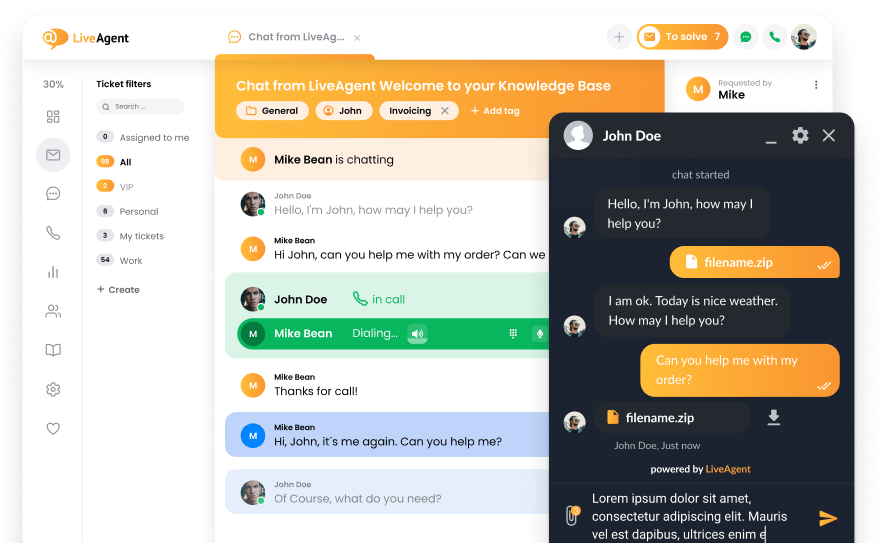What is remote authentication?
When you want to authenticate your users, you do not have to do it directly in your app. Remote authentication allows your users to log in via outside platforms. These include social media single sign-on providers, like Facebook or Google and Enterprise single sign-on using JSON Web Token (JWT) or Secure Assertion Markup Language (SAML).
Frequently Asked Questions
What is remote authentication?
Remote authentication is the ability to log in to the application via external platforms. There is no need to create a special account for one platform.
What are the benefits of remote authentication?
Remote authentication allows easier access to the application and a shorter time to set up an account on a given platform. Allows you to troubleshoot remote locations. It facilitates remote work of employees and facilitates cooperation.
Does LiveAgent enable remote authentication?
LiveAgent, a remote help desk software, enables seamless remote authentication, offering enhanced convenience for agents. With its advanced features, it brings greater comfort and efficiency, especially in remote working environments.
![Expert badge]() Expert’s note
Expert’s note
Utilizing secure and reliable remote authentication systems can help businesses build and maintain trust with their customers.

Looking for a remote help desk software?
Remote help desk software is becoming the new normal for most people across the globe. Even before the covid-19 breakout, remote work was on the rise.
How to build a great remote customer service team
Remote work is becoming increasingly popular as research suggests it offers benefits to both employers and employees. Remote customer service teams can be particularly effective, with studies indicating that they are more productive, work longer hours and have higher retention levels. Remote work can also save businesses significant costs associated with maintaining a physical office. To make remote customer service work, companies need to adopt the right software and processes to support their teams and provide quality services. A customer service software tool can streamline all communication channels and enable ticketing, detailed analytics and internal note sharing. An internal knowledge base is also important to help ensure that remote teams can access the information they need to do their jobs effectively.
LiveAgent Webinar 3: Live Chat & Chat Invitations
LiveAgent webinars provide insights into the live chat feature, offering step-by-step guidance on setup and customization. It covers chat routing, customer interactions, and agent tools, optimizing live chat efficiency.

 Български
Български  Čeština
Čeština  Dansk
Dansk  Deutsch
Deutsch  Eesti
Eesti  Español
Español  Français
Français  Ελληνικα
Ελληνικα  Hrvatski
Hrvatski  Italiano
Italiano  Latviešu
Latviešu  Lietuviškai
Lietuviškai  Magyar
Magyar  Nederlands
Nederlands  Norsk bokmål
Norsk bokmål  Polski
Polski  Română
Română  Русский
Русский  Slovenčina
Slovenčina  Slovenščina
Slovenščina  简体中文
简体中文  Tagalog
Tagalog  Tiếng Việt
Tiếng Việt  العربية
العربية  Português
Português 
 Expert’s note
Expert’s note





